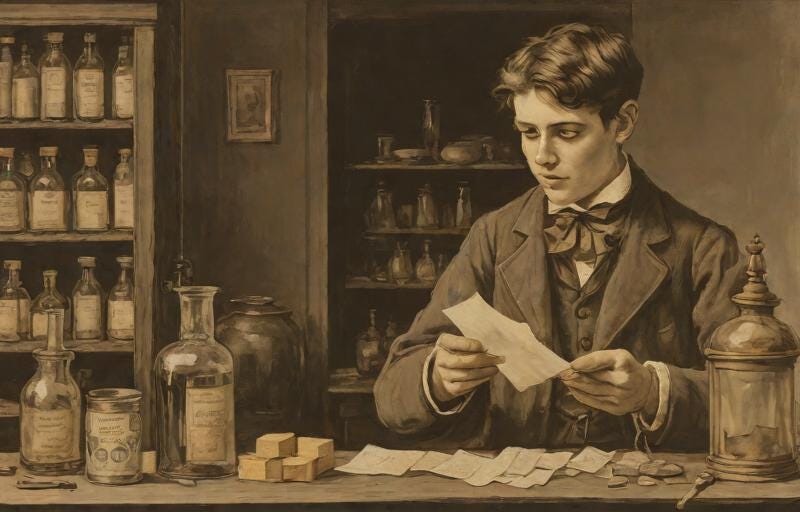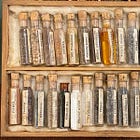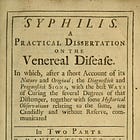‘Making people well and making people laugh’
At the age of 15, a lad from Anglesey set off to achieve his ambition of becoming a doctor.
Dydd Gŵyl Dewi Hapus! This St David’s Day I am focusing on the experiences of a young Welsh medical student, who began his career at the age of 15 as apprentice to a Liverpool doctor. His rather hotch-potch path to qualification – and the weighty levels of responsibility placed on him as an awkward teenager – give an informative and amusing insight into the Victorian medical profession.
William Thomas of Llanfflewyn, Anglesey (c.1855-1939) looked back on his experiences in a series titled 'Recollections of a Welsh Doctor', for the Welsh Outlook journal in the 1930s. By this time, he was in his 70s and retired from a long career as a general practitioner and Justice of the Peace in Rhyl.
Thomas was a farmer’s son and medicine hadn’t been a lifelong ambition, but when the time came for the young man to think about his future, he found inspiration in the jovial local doctor of his childhood community.
‘He fired my ambition and I decided that like him I would be a doctor some day, also riding triumphantly all day long making people well and making people laugh.’
Thomas’s family arranged for him to be a pupil to his mother’s uncle – a kind and gentlemanly but financially disorganised doctor in Liverpool. Wales did not have any medical schools at this time, so aspiring medics had to travel to England, Scotland, Ireland or continental Europe to study and qualify.
Arriving in the big city
Liverpool was home to an established Welsh-speaking community (including my own ancestors!) so it formed an obvious port of call for students from North Wales. Thomas arrived there as a self-conscious 15-year-old country lad, with ungainly posture, a persistent tuft of sticking-up hair, and clothes made for practicality rather than style. His English was not yet fluent, and he spoke it with a curious mixture of Welsh and Irish accents, having attended school in Dublin for a while.
His sophisticated 24-year-old cousin took it upon herself to induct him into urban refinement, starting with a shopping trip for a new hat. The only one she would let him buy was ‘a hard felt hat, low in the crown and wide in the rim,’ which Thomas disliked and wore along with ‘a worried look’. To his relief, the family’s ancient retriever watch-dog stole the hat and chewed it up.
Dispensing medicines and compassion
At first, Thomas worked in the dispensary, where he kept the counter clean, looked after the equipment and wrote labels for bottles. He progressed to weighing and measuring ingredients and making pills, plasters and ointments, and within a few months of his arrival, was dispensing all his uncle’s prescriptions.
He also accompanied the boss on his rounds, which were done on foot, and observed how to interact with patients. One of the most important things Thomas learnt during this time was ‘bedside manner’. His uncle was a Poor Law medical officer, so many of the patients lived in difficult circumstances. Thomas found that while private patients objected to having a lad of 16 intruding into their sick room, the poor welcomed him and appreciated him listening to their troubles and offering words of sympathy.

A failed attempt at dentistry
Thomas encountered a less appreciative patient just a couple of months after his arrival in Liverpool. A boy called at the surgery desperate to have a painful tooth removed, and as the boss was out, Thomas unwisely decided to give the operation a go.
‘I placed him in a chair, examined the offending tooth, looked for a pair of forceps, selected the wrong one (I knew not one from the other), proceeded with a firm hand, grasped the tooth with the forceps, gave a twist and a pull, and succeeded, not, alas! in extracting the tooth, but in smashing it to a pulp, and increasing the poor fellow’s agony ten-fold.’
The only options were to accept the raging patient’s challenge of a fight, or take him to a nearby tooth-drawer and bear the expense of sorting out the mess. Thomas chose the latter.
Over the new two years, Thomas became adept at bandaging, opening abscesses, prescribing for uncomplicated cases, and vaccinating. He also had a list of chronically ill and infirm patients whom he visited every day to check on their progress. In 1872, he was ready to enrol at the Liverpool School of Medicine and begin formal study.
The hospital and the operating theatre
By his own admission, he was 'just one of the crowd, a very ordinary student' who didn't win any prizes. Most of his classmates were in their teens like him. A few older ones had become 'chronic students' through indolence, ineptitude or profligacy, and some were older still – men in their thirties and forties who had worked as unqualified medical assistants and now wanted to pass some exams before that role was abolished.
Thomas recalled watching his first operation and managing not to faint (unlike one of his peers, who fell to the floor with a ‘dull thud’). An experience that made a lasting impression on him was a visit to the Lock Hospital, which specialised in venereal disease. There he saw:
‘…men and women, covered with copper-coloured rashes, scaly eruptions, festering sores with stinking discharges, diseased and crumbling bones, and other horrible conditions that would be indelicate to mention.’
This permanently put him off having anything to do with the ladies of dubious character who were popular with other students.
‘Responsibility scarcely justifiable’
For financial reasons, Thomas's father asked him to break off his studies and take a job as an assistant for a year. He found a role by responding to an advert in The Lancet and set off for a colliery village near Newcastle-upon-Tyne in 1875. His salary was to be £40 a year and the experience was something of a baptism of fire. His boss, although a hard-working and skilled doctor, had a short temper that became 'rather difficult to endure.' Awful food and long hours added to the challenges.
Although unqualified and only 20 years old, Thomas effectively acted as a doctor, starting the day in the surgery then undertaking a round on horseback to the nearby villages. After an indifferent lunch, he would spend the afternoon dispensing and bookkeeping before another round of visits and then back to the dispensary again, where he worked until around 11pm. He also had to go out to maternity cases in the night and spend many hours waiting 'with half a dozen colliers' wives sitting round the fire, all smoking clay pipes and gossiping to their hearts' content'. The only consolation was the piece of cake and glass of whisky traditionally offered when everything turned out all right.
Thomas stayed there four months then took another job in a Yorkshire agricultural community, where he got on famously with his boss and found the patients hospitable and kind. Again, however, he ended up taking on all the duties one would not expect of an unqualified practitioner, even being left in sole charge of the practice when his boss took a day off or went away for the weekend. Although daunting, this enabled Thomas to gain experience of the practice's 'better class patients', which was advantageous to his career.
'I was charged with responsibility scarcely justifiable,' Thomas wrote, recalling having to deal with a scarlet fever epidemic alone because his principal did not want to risk transmitting the disease to maternity patients. Ready to return to study, he enrolled in the Ledwich School of Medicine – a private concern in Dublin – and in 1877 set off for London to take his Royal College of Surgeons exam.
After all these experiences, his career was only just beginning.
Sources: ‘Recollections of a Welsh Doctor,’ parts I-XIII, serialised in The Welsh Outlook, 1932-1933.






